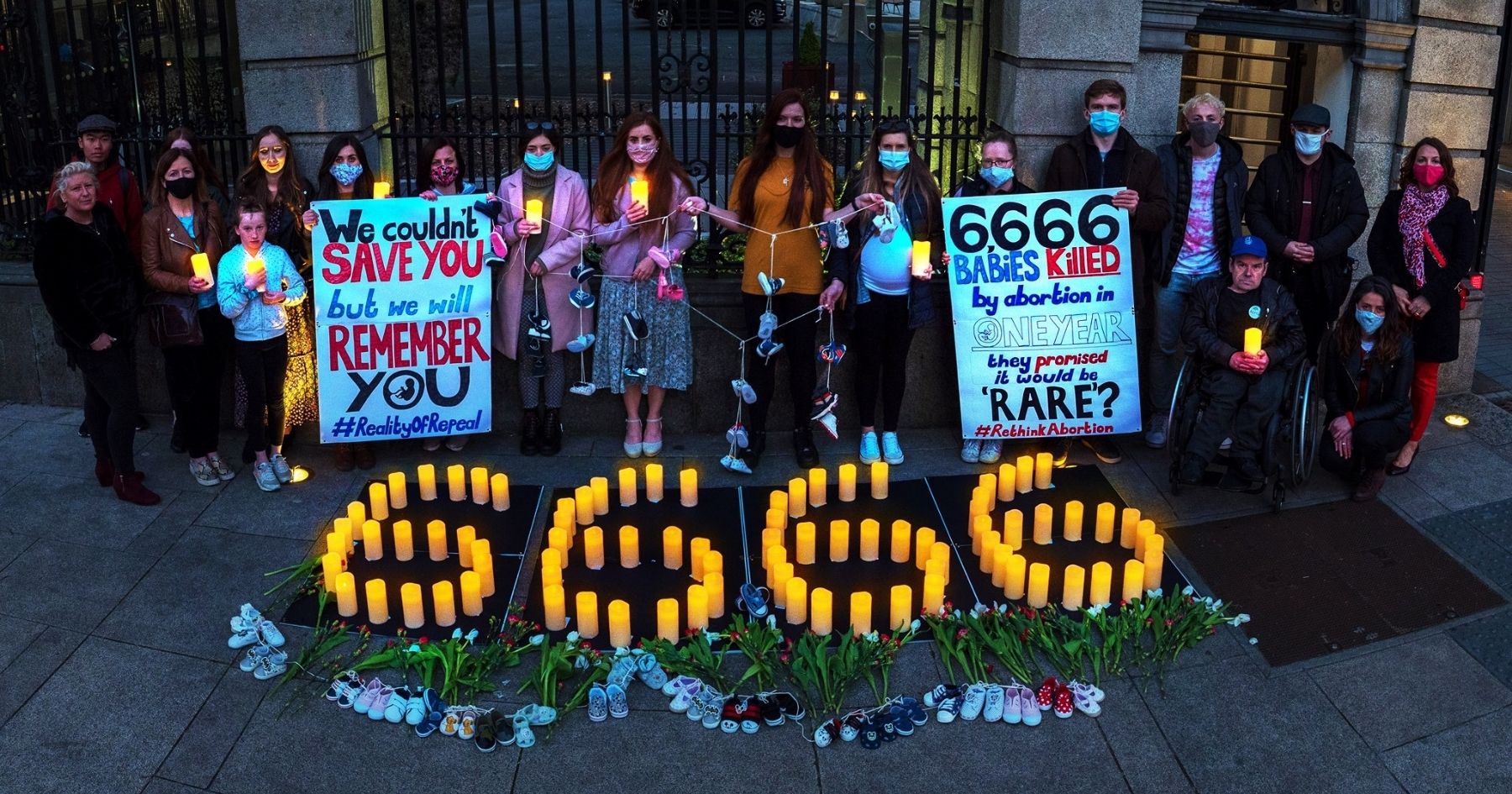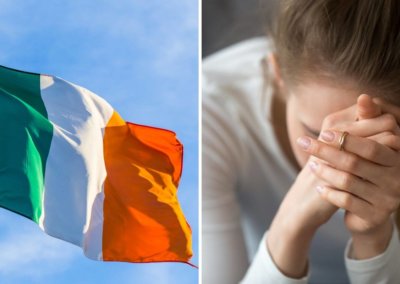Today marks the third anniversary of Ireland’s referendum on May 25th, 2018 on whether to repeal the Eighth Amendment: the amendment to the Irish constitution passed in 1983 that explicitly guaranteed the right to life of the unborn. The “Yes” campaign received 66.40% of the vote, and 33.60% voted “No” to repealing the amendment.
Following the referendum, the Health (Regulation of Termination of Pregnancy) Act entered Irish law on December 20th, 2018, and abortion services commenced on January 1st, 2019.
Large increase in number of lives lost to abortion
According to official figures, 6,666 abortions took place in Ireland in the 2019/20 year.
Official figures from the UK Department of Health and Social Care show that an additional 375 abortions took place in England and Wales in 2019 where an address in the Republic of Ireland was provided. Meanwhile, 67 of the abortions that took place in Ireland in 2019 were for women from Northern Ireland, taking the number of abortions for women resident in Ireland to 6,599.
The total number of abortions in 2019 for Irish resident women that were performed in Ireland, England, and Wales was 6,974.
Before new abortion legislation was introduced to Ireland in 2018, the number of abortions that took place in England and Wales for women who are Irish residents was 2,879. A further 32 abortions were reported to have taken place in Ireland under the Protection of Life During Pregnancy Act, taking the total number of abortions for Irish residents to 2,911.
It means that the total number of abortions that have taken place for Irish resident women in England, Wales, and Ireland, as recorded in official statistics, has increased from 2,911 to 6,794 abortions since the legislation was introduced to Ireland – this represents an additional 3,883 abortions, an increase of 133%.
The campaign to expand abortion access in Ireland
A review of Ireland’s abortion legislation is currently being undertaken by the Department of Health, while abortion campaigners in Ireland are campaigning for abortion access to be even more expansive.
The ‘Termination for Medical Reasons’ group have stated that their “number one” request is the total decriminalisation of abortion for medical practitioners, who can face up to fourteen years in prison if found guilty of providing an abortion outside the provisions of the 2018 Act.
The ‘Abortion Rights Campaign’ is requesting that the ‘DIY’ at-home abortion service, permitted under lockdown regulations, be made permanent. They are also in favour of eliminating gestational limits enshrined in the current abortion law.
There are also ongoing calls to enforce censorship zones around medical premises where abortions are performed. In the wake of the referendum vote in 2018, Minister for Health Simon Harris pledged to legislate for “safe access zones”. However, this legislation is yet to be proposed and the Department of Health has said that “a number of legal issues were identified which necessitated further consideration”.
A spokesperson for Right to Life UK, Catherine Robinson, said: “Every single abortion represents a failure by society to protect the lives of babies in the womb and a failure to offer full support to women with unplanned pregnancies. Those who campaigned to repeal the eighth amendment claimed that this would not increase abortion figures in Ireland, but the figures evidence a very large increase. It is tragic that not only has Ireland failed to protect the unborn, but that campaigners are seeking to further radicalise regulations, and even decriminalise abortion entirely”.











